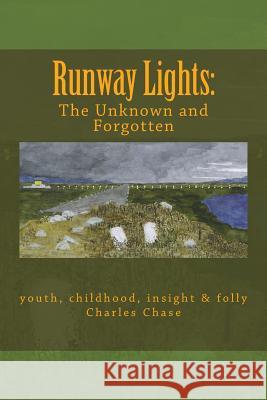Runway Lights: The Unknown and Forgotten » książka
Runway Lights: The Unknown and Forgotten
ISBN-13: 9781534680531 / Angielski / Miękka / 2016 / 146 str.
Why do we remember the experiences we do, when so much that is seen and heard is forgotten? This is one of the fundamental questions that lie behind the poems in Charles Chase's Runway Lights: The Unknown and Forgotten. Some of the poems in this volume portray the relationships of parents, family members and friends, encompassing the highly personal dramas and traumas of the poet's childhood, as well as imagined events and characters. Which episodes are real and which are imagined is not always clear; some poems contain both. All of which speaks to the nature of memory: since the real (and even the imagined) events no longer exist, all we are left with are impressions and stories of what happened. Is a "real" memory more valid than an imagined one? In what way are memories valid? Then there are poems that are concerned with episodes that might be described as non-events. These moments have remained in the poet's memory, and it is Chase's ambition is to gain some perspective as to why that is the case. The key is not to come to some understanding of the event, but rather to enter into the experience of it, where watching the dust floating in the light of a basement window, or lying in the sun with his dog as a toddler, or visiting his father in the psychiatric ward, or even watching the flight of a flock of cowbirds all provide access to deep emotional insights about self and the world. Alongside the many poems based in memory and experience are nearly as many based on observation and contemplation. Chase digs deep at what might be discovered underneath our ground of paradigms, challenging our constructs of reality, life, death, the self, the senses, and of course memory, to name a few. The effect can be unsettling, causing us to question age-old assumptions about the way things are. But with these challenges come breathtaking new insights and perspectives, and the possibility of seeing the world in fresh, new ways. Chase clearly accepts that his memories may be flawed in terms of what might actually have occurred in the past. But factual recounting is not the poet's primary concern. So too, his perspectives on reality, while carefully considered, could scarcely be expected to hold up under all challenges. Rather than being overly concerned about accuracy and truth (both of which are ideals and are thus ultimately unattainable), the poet has his focus on the confluence of the senses, the imagination and the emotions. For Chase, these three realms would seem to account for the totality of human experience -- and whatever insights one might gain (or appear to gain) about existence, these realms remain highly mysterious and profound. Thus the folly of wisdom as we ponder what is ultimately incomprehensible. While Chase foolishly and wisely tries to fathom his existence, following a roughly chronological order, the poems increasingly become involved with exploring the nature of existence and, finally, death. There are well over a dozen poems in this volume that deal directly with mortality. Sometimes Chase is fanciful regarding death and the afterlife, sometimes he is rational, and at still other times he allows his emotions to engage with the prospect. Always, however, he is willing to grant death its place and even to welcome it. As with Chase's other books, this one deals with an array of subject matter in a wide variety of styles, from free verse to prose poems to experimental forms. This book is not a quick read, but rather one to be savored, as each poem is its own meal, unique, and often highly satisfying.
Zawartość książki może nie spełniać oczekiwań – reklamacje nie obejmują treści, która mogła nie być redakcyjnie ani merytorycznie opracowana.











